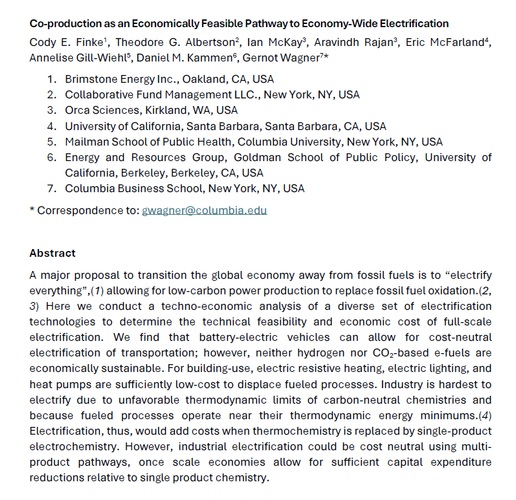NPR Marketplace: "United launches $100 million green jet fuel fund"
by Mitchell Hartman
We’ve got electric cars and gas-powered buses, but it’s still old-fashioned kerosene — jet fuel derived from oil pumped out of the ground — that powers most airplanes going from point A to point B.
To move the industry toward decarbonization, United Airlines has launched a $100 million venture fund to support startups developing more sustainable jet fuels. Partners include JP Morgan Chase, GE Aerospace, Honeywell and Air Canada.
Battery technology is advancing into the skies — but slowly — according to Ron Pernick at equity research firm Clean Edge.
“In the next five or ten years, we likely will see electrification of helicopters or short-haul vehicles,” he said.
But to fly a few hundred passengers across a continent, you need high-powered, high-carbon-producing jet fuel.
“We’re not really going to see long-haul transport using batteries—it’s just too difficult,” Pernick said. “And that’s why this announcement to decarbonize fuels is probably an important step.”
Pernick said early investment will go into biofuels made from recycled waste and crops.
Columbia University economist Gernot Wagner said the $100 million investment — in early-stage technologies — is just a start.
“It doesn’t deploy existing biofuels at scale, right? That takes billions,” Wagner said.
United will utilize incentives in the Biden administration’s climate bill to spur its investments.
Quoted in: "United launches $100 million green jet fuel fund" by Mitchell Hartman, NPR Marketplace (22 February 2023)


